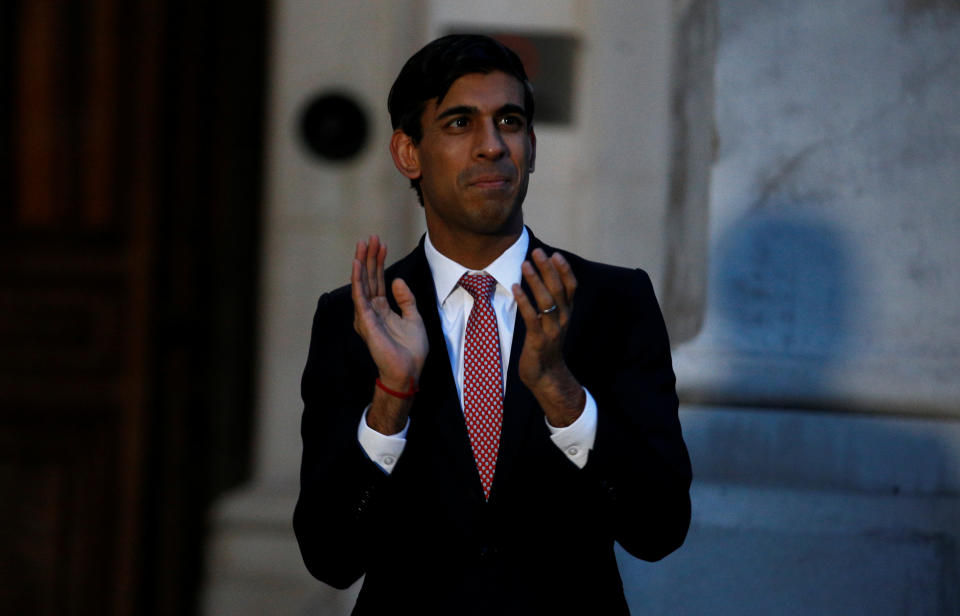Coronavirus: No free money for Brits despite calls for universal basic income

UK chancellor Rishi Sunak has ruled out introducing a universal basic income (UBI) in Britain, dashing the hopes of some campaigners.
The finance minister said it was not the “right response” to the COVID-19 pandemic and defended the existing welfare system when asked about UBI on Tuesday.
UBI involves unconditional cash payments to all citizens whatever their income, either replacing or complimenting other targeted welfare benefits or tax allowances.
Calls for UBI in Britain have grown in recent weeks, as millions of households have taken an economic hit from the coronavirus lockdown. Fans of UBI argue the policy is the most effective way to keep every household above the breadline. Some like the RSA also see it as a public health measure — those who need income to survive won’t need to go to work when sick and risk spreading COVID-19 further.
READ MORE: Businesses plead for urgent support as two-thirds plan to furlough staff
Responding to a question on UBI at the Downing Street press conference on Tuesday, Sunak said: "I don't think universal basic income is the right response to this."
“Universal credit is working well, obviously DWP [Department for Work and Pensions] staff are under strain like many other organisations across the country and they're dealing with people being sick and away as well but I think, given the circumstances, they are processing claims efficiently and effectively.
“We've also injected extra resources to deal with the particular nature of this crisis into the welfare system... interventions which will total several billions of pounds.”
Campaigners argue UBI is more effective and less bureaucratic than most targeted support schemes, which often fail to reach all their intended recipients.
UBI has typically received most support on the radical left, but recently more mainstream voices have given it their blessing.
READ MORE: Spike in tenants not paying rent as COVID-19 hits jobs and pay
Last week, Scotland’s first minister Nicola Sturgeon said the coronavirus had “strengthened immeasurably” the case for UBI. She welcomed a report by the Reform Scotland think tank that proposed giving every adult £5,200 a year and under-16s £2,600 a year. Sturgeon said she hoped to discuss UBI with the UK government.
Similar ideas are also gaining traction around the world. The US government is already making $1,200 direct payment to citizens for those earning up to $75,000 a year, which has been seen as a form of temporary and limited UBI.
A petition for UBI in Britain has gained more than 20,000 signatures in recent weeks.
But critics are wary of the vast costs of such proposals. Reform Scotland’s proposed ‘basic income guarantee’ would cost £20.4bn in Scotland alone.
The UK government has already introduced a ‘furloughing’ scheme subsidising pay for workers who otherwise faced redundancy. An income support scheme also exists for the self-employed.
Millions of workers are expected to benefit from such schemes, though some warn they are too bureaucratic, slow and leave too many ineligible workers “falling through the cracks.”
Watch the latest videos from Yahoo UK

 Yahoo Finance
Yahoo Finance 